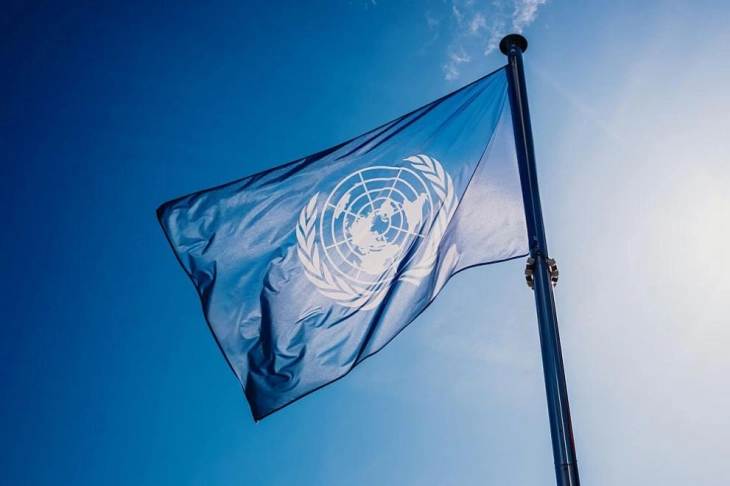UNICEF: Educational facilities in North Macedonia to prepare for heat shocks, vulnerable households to be given cash assistance
- Educational facilities in North Macedonia need to be prepared for shocks, to avoid closing schools or prolonging summer school breaks as a response to extreme temperatures, while teachers and parents need to be equipped with skills to respond to heat stress, according to a new analysis published by UNICEF on Wednesday.
- Post By Angel Dimoski
- 14:21, 24 July, 2024

Skopje, 24 July 2024 (MIA) - Educational facilities in North Macedonia need to be prepared for shocks, to avoid closing schools or prolonging summer school breaks as a response to extreme temperatures, while teachers and parents need to be equipped with skills to respond to heat stress, according to a new analysis published by UNICEF on Wednesday.
In the analysis, UNICEF points to a need to invest in an updated heat health action plan and primary health care to adequately support the prevention of, early response to, and diagnosis and treatment of heat-related illness among children. Plans should give special attention to address the vulnerabilities experienced by children living in poverty, sub-standard housing, children with disabilities and those living and working on the streets.
According to UNICEF, recognising that families with lower income are likely to face higher heat exposure risk and have reduced coping capacities, and that heatwaves also impact family livelihoods – there is a need for a broader national response to understand and address the socio-economic impact of heatwaves and introduce shock-responsive social protection interventions – such as cash assistance and social service outreach to vulnerable households - to help families cope with the socio-economic impacts of extreme heat.
“While heat has not been a major contributor to infant deaths in North Macedonia, exposure to frequent heatwaves remains a concern calling for continued efforts to ensure national climate and environmental policy are child- and youth-sensitive,” the analysis states.
The analysis of data from 23 countries shows that rising temperatures across Europe and Central Asia killed an estimated 377 children in 2021.
“Around half of children across Europe and Central Asia – or 92 million children - are already exposed to frequent heatwaves in a region where temperatures are rising at the fastest rate globally. The increasingly high temperatures can have serious health complications for children, especially the youngest children, even in a short space of time. Without care, these complications can be life-threatening,” said Regina De Dominicis UNICEF Regional Director for Europe and Central Asia.
According to the analysis, heat exposure has acute effects on children, even before they are born, and can result in pre-term births, low birth weight, stillbirth, and congenital anomalies. Heat stress is a direct cause of infant mortality, can affect infant growth and cause a range of paediatric diseases. The report also notes that extreme heat caused the loss of more than 32,000 years of healthy life among children and teenagers in the region.
As the temperatures continue to rise, UNICEF urges governments across Europe and Central Asia to: integrate strategies to reduce the impact of heatwaves including through National Determined Contributions (NDC), National Adaptation Plans (NAP), and disaster risk reduction and disaster management policies with children at the centre of these plans; invest in heat health action plans and primary health care to more adequately support heat related illness among children; invest in early warning systems, including heat alert systems; adapt education facilities to reduce the temperatures in the areas children play in and equip teachers with skills to respond to heat stress; adapt urban design and infrastructure including ensuring buildings, particularly those housing the most vulnerable communities are equipped to minimize heat exposure; secure the provision of safe water, particularly in countries with deteriorating water quality and availability.
UNICEF works with governments, partners and communities across the region to build resilience against heatwaves. This includes equipping teachers, community health workers and families with the skills and knowledge to respond to heat stress.
фото: МИА архива







